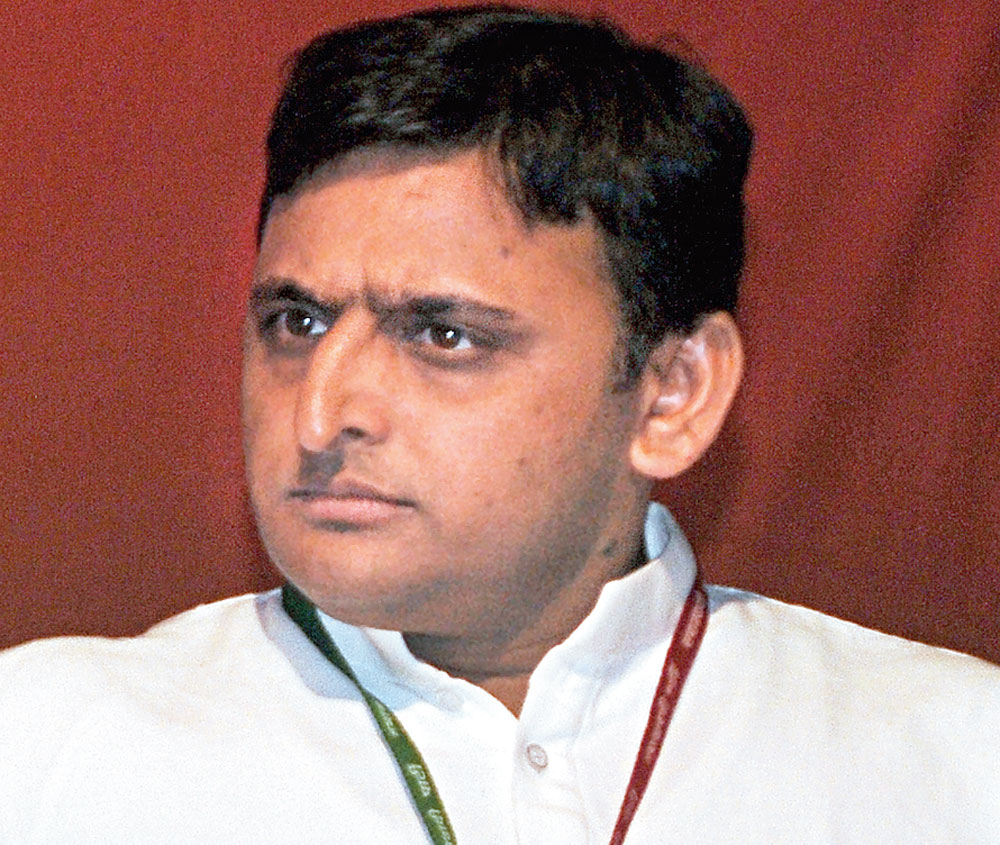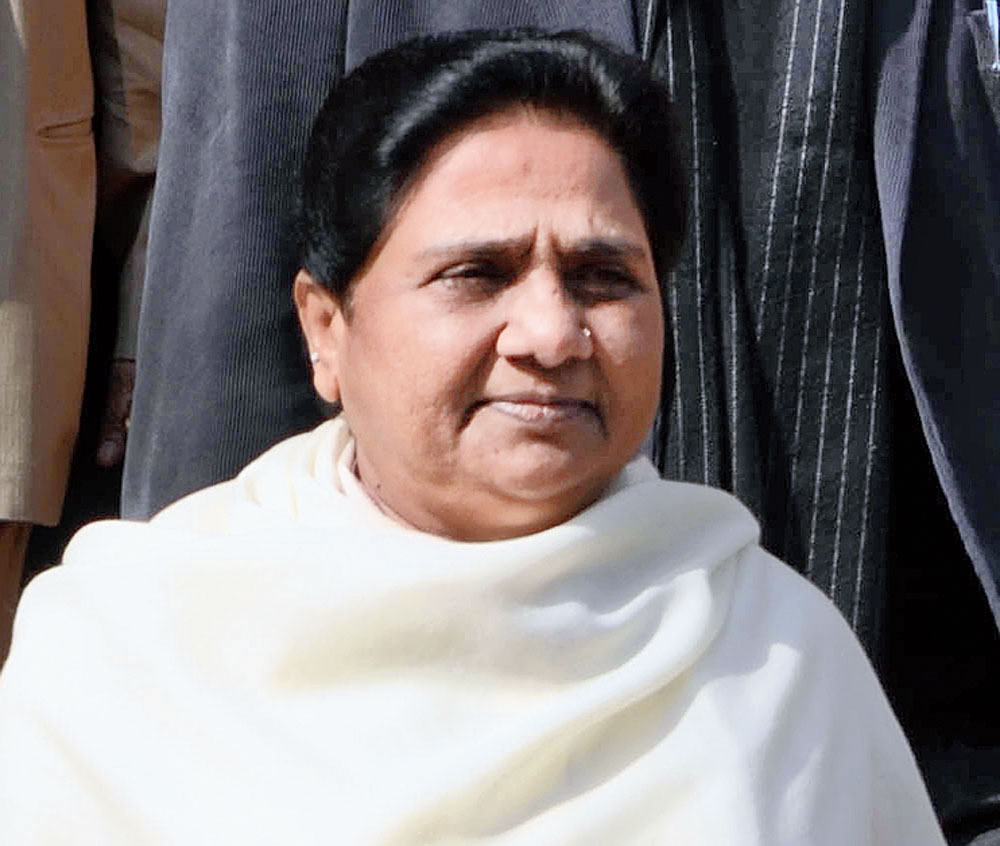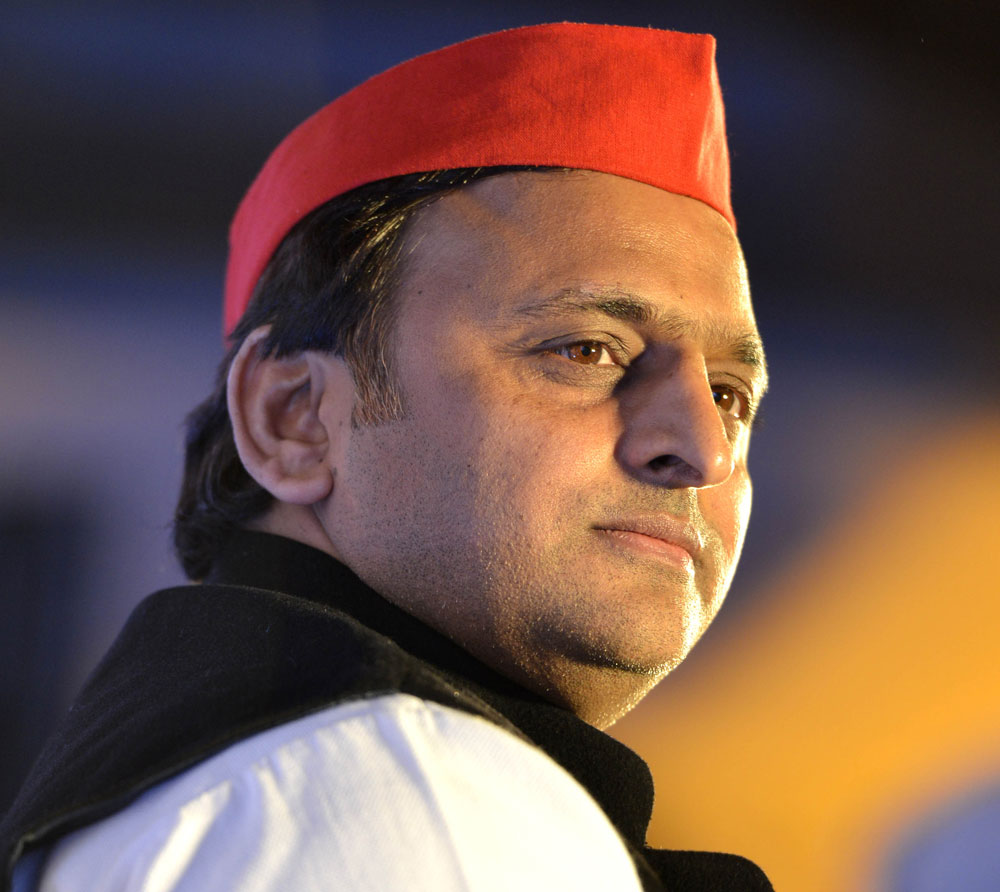The Congress leadership is keen on sewing up the broadest possible alliance of like-minded parties for next year’s parliamentary elections but is working on a “fallback plan” for Uttar Pradesh because of lack of clarity in the most critical state.
Although key strategists still believe a grand coalition involving the Samajwadi Party, Bahujan Samaj Party, Congress and the Rashtriya Lok Dal is on the cards, many leaders doubt whether such a front would materialise.
Their suspicions have deepened following the Congress’s failure to convince the Samajwadi and the BSP to ally with the party in Madhya Pradesh, Rajasthan and Chhattisgarh in the latest round of Assembly elections.
These leaders want the Congress to be battle-ready in constituencies where it has a substantial presence and have, in a report to party chief Rahul Gandhi, called for preparing to go alone in at least 30 carefully chosen seats.
“We can announce to the people of the state that the Congress does not want a division of votes that would help the BJP and hence won’t field candidates in 50 constituencies,” one leader told The Telegraph.
The heartland state sends 80 MPs to the Lok Sabha.
The leader explained that such a situation would arise only if the Samajwadi and the BSP decide to dump the Congress or push it into a corner with an unreasonable offer.
“What if they tell us in February or March that they can spare only six to eight seats for the Congress? What if they say there is no space at all in the coalition as the SP-BSP-RLD have done a deal? We need a fallback plan,” the Congress leader said.
Another leader associated with the Congress’s election planning said: “We won 22 seats in the state in 2009. We expect to contest that number again. If we are squeezed out by a dominating SP-BSP, we will have to carve out our own space. We are determined to stitch an alliance and even play second fiddle to the major parties. But we can’t surrender our interests completely.”
Congress leaders claim that Sonia Gandhi and Rahul enjoy a cordial relationship with BSP boss Mayawati and Samajwadi chief Akhilesh Yadav, but murmurs about extraneous pressure influencing the electoral strategy of the two heartland leaders never stop.
Mayawati’s attitude in Madhya Pradesh and Chhattisgarh created an impression that she was being unreasonable and both have been reluctant to attend opposition meetings over the past few months.
Mayawati plans to hold a mega rally on her birthday in January, which could turn out to be a gathering of non-Congress and non-BJP leaders. Reports suggest she does not intend to invite the Congress while all other opposition leaders will be called.
Congress leaders say it is too early to get alarmed but acknowledge that a contingency plan should be kept ready in politics.
Some in the Samajwadi and BSP ranks feel that it might benefit their parties if the Congress contests on its own as it could cut into the BJP’s forward-caste votes.
But a resurgent Congress can cut both ways — splitting even the crucial Muslim vote, thereby helping the BJP.
Sources said the Congress would prefer a tacit understanding with the Samajwadi-BSP if there is no formal alliance to avoid a division of anti-BJP votes in at least 50 constituencies.
Congress leaders, however, say they would like a formal grand alliance to avoid confusing voters.
“The Congress has the largest national footprint and it will figure prominently in alliance processes throughout the country,” senior leader P. Chidambaram, who recently made a detailed presentation on alliances at a party forum before Rahul, told an event a few days back.
“We know that regional parties will lead the alliances in many states. The DMK is strong in Tamil Nadu, SP-BSP will lead in UP. There won’t be difficulties if every party recognises its strength in every state.”
Former Jammu and Kashmir chief minister Omar Abdullah, who too spoke at the same event, said: “Regional parties will play an important role in the next parliamentary elections but no government can be possible without the Congress or the BJP. The Congress will have to take a few steps back in some states where it is weak. We know the SP-BSP understanding is intact in Uttar Pradesh, but will have to see how the Congress gets accommodated.”
There is no trouble in Tamil Nadu and Maharashtra as the Congress has sorted out issues with the DMK and the NCP.
The situation is still fluid in Bihar: while there is uncertainty about LJP leader Ram Vilas Paswan, whispers about even Nitish Kumar’s unease in the NDA and strategist Prashant Kishor’s machinations have fuelled speculation.
In Bengal, the scenario is wide open with the Congress flirting with both Trinamul and the Left.
In Andhra Pradesh and Telangana, the Congress-TDP alliance looks stable, while Karnataka is also safe for the Congress, which rules the state with the Janata Dal (Secular). Kerala has always had a Congress-led coalition.
The party may not like to go in for tie-ups in Gujarat, Madhya Pradesh, Rajasthan, Chhattisgarh, Punjab and Haryana.
In Delhi, an alliance with the Aam Aadmi Party appears difficult, as the Congress wouldn’t settle for two or three seats that could be offered.
Around 60 to 70 days are still left before these parties firm up relations but negotiations are expected to start soon.

Samajwadi Party chief Akhilesh Yadav Telegraph picture












